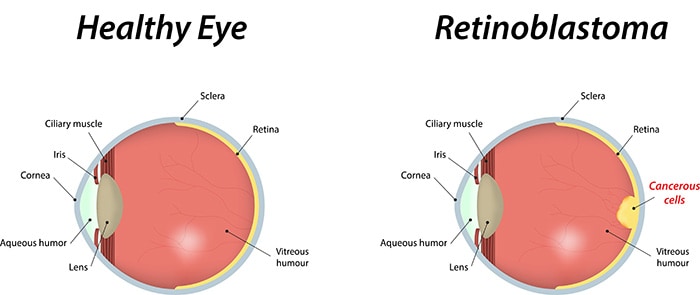
The most common cancer involving the eye in young children is retinoblastoma. In the United States, this fast-growing cancer occurs in 1 in every 20,000 children, making it the 10th most common pediatric cancer.
Optometrists diagnose, refer and co-manage the care of cancers that involve the eye area. Early detection of cancer can greatly reduce the severity of the illness and increase life expectancy.
Often the first sign of retinoblastoma in a child is the appearance of a white eye in a photograph taken with a flash. A child’s pupil should never appear white. If it does, see your optometrist for an evaluation immediately.
There are two forms of retinoblastoma: hereditary and sporadic. Although sporadic retinoblastoma occurs more frequently, children from families with a history of hereditary retinoblastoma should be assessed regularly.
Even if no eye or vision problems are apparent, the American Optometric Association recommends scheduling your baby’s first eye assessment at 6 months. Through InfantSEE®, a public health program managed by the AOA Foundation, participating optometrists provide a comprehensive infant eye assessment between 6 and 12 months of age as a no-cost public service. Go to the InfantSEE® website to learn more and locate a doctor in your area who can provide a free infant assessment.


